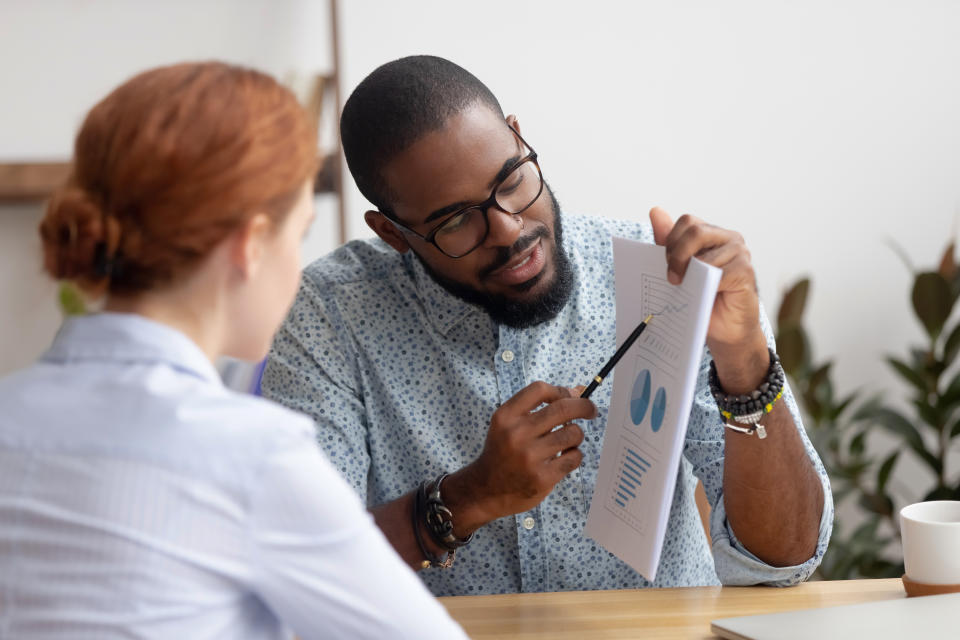How to make your afternoons as productive as your mornings

If you’re a morning person who works at their best first thing, the afternoon can sometimes feel like a write-off. You’ve had breakfast, been to the gym, answered 20 emails, made a solid headstart on a project and had two meetings, but things begin to slow down after lunch - even though your workload stays the same.
According to a recent survey by Pro Plus, 14.12 is the time when many of us experience a slump at work. In fact, it’s when more than a third of Brits feel drowsy and depleted of energy, which leads to their productivity suffering.
Even squeezing an extra hour of solid work in the afternoon feels impossible sometimes, which can leave us more stressed as work piles up for the next day. So how can we make better use of our afternoons and stay productive?
‘Be realistic’
Firstly, it’s important to be realistic about how much you can get done in an afternoon. For people who work better in the morning, saving mindless but essential tasks - ones which are necessary but don’t take much thought - can be a good idea.
“Write an afternoon to-do list that includes no more than three important tasks,” says Rachida Benamar, a career coach, entrepreneur who worked in the legal sector before launching her own business.
READ MORE: How to forget about work when the workday is finished
“When I first say this to clients they think I have lost my mind because they ‘obviously have more than 100 things to do’ but if you want to be productive you need to make a clear distinction between what is urgent and what is important. If you manage to complete three important tasks your afternoon will be a success.
“Another technique when faced with a big task is to commit 15 minutes to it,” Benamar adds. “It is less daunting and once you start you will find keeping going easier.”
The way you structure your day can also have a big impact on how productive we are throughout the day. It’s a common misconception that being chained to your desk from the moment to step into the office means you’ll get lots done. Although you may feel self-disciplined, studies suggest we are far more productive when we take regular breaks.
According to DeskTime, a productivity app that tracks employees' computer use, the most productive 10% didn’t put in longer hours than anyone else - nor did they work eight-hour days. In fact, they took 17-minute breaks for every 52 minutes of work. What’s more, the researchers also found the most productive breaks were spent away from the computer.
READ MORE: Would working fewer hours tackle the climate crisis?
“I am a huge believer in taking a walk at lunchtime to freshen yourself up. We are lead to believe that being glued at our desks means we are working hard and being productive. This is total nonsense,” Benamar says.
“Instead of having your lunch at your desk because you want to save time, get outside. Even if you have packed your lunch then go for a walk anyway and make sure you leave your phone behind,” she adds.
“Unless you are a heart surgeon on call, anything can wait 20 minutes. You train people around you to respect your boundaries and this includes your boss. If you do that every lunch time and you make it clear that it improves your productivity you will see that people will respect it.”
Social interaction at work is also key to staying motivated, alert and engaged in the afternoon too. In a research paper, Thomas Cornelissen, a former professor of economics at the University of York, suggests that interacting with co-workers can lead to a productivity spike, particularly if we see others working hard. Socialising with colleagues also fosters a more positive workplace environment, a known factor in boosting employee productivity.
‘Social interaction increases motivation’
“Make sure you have a chat with your colleagues because social interaction increases your motivation,” Benamar says. “If you can choose your seat, try to sit next to a hard worker because it will motivate you to work. It is like going to the gym and you are next to someone running fast, your level of motivation changes almost instantly.”
Sarah Callender, commercial director at Duo Global Consulting, adds that a number of lifestyle choices can impact how productive you are in the afternoon. If a big lunch makes you sleepy or sugary foods make you crash, for example, choose something lighter or healthier. For some, a quick jog at lunch kick-starts the brain for the rest of the day.
“Everybody starts their day with a bucket of energy,” she says. “Ask yourself, are there things that happen at certain points in the day that de-motivate you and deplete your energy quicker than others?”
“There are some obvious things that impact your energy levels across the day and can cause productivity dips in the afternoon. These range from taking breaks, avoiding foods that cause a spike in your blood sugar levels and managing your stress levels.”

 Yahoo Finance
Yahoo Finance 